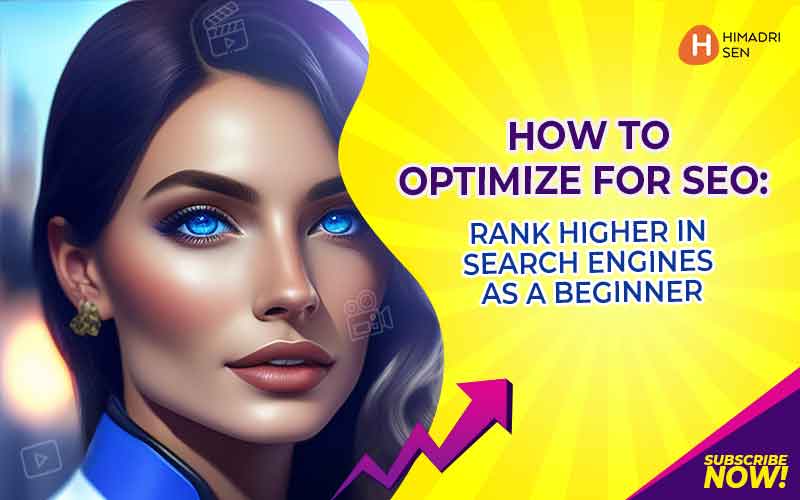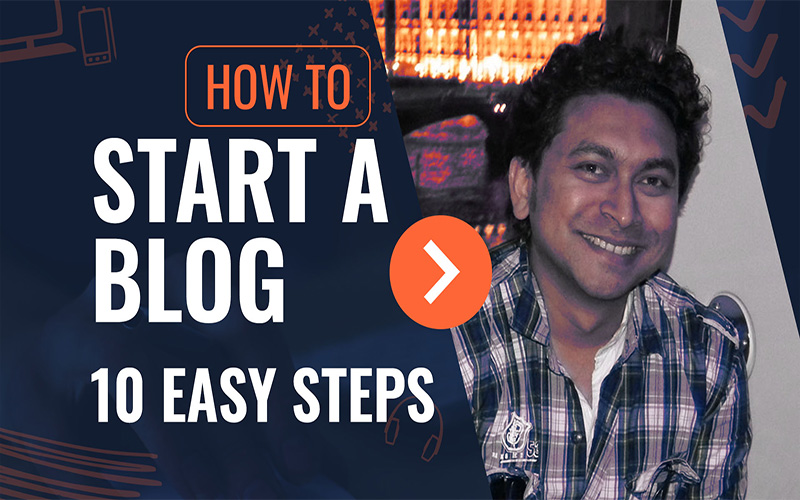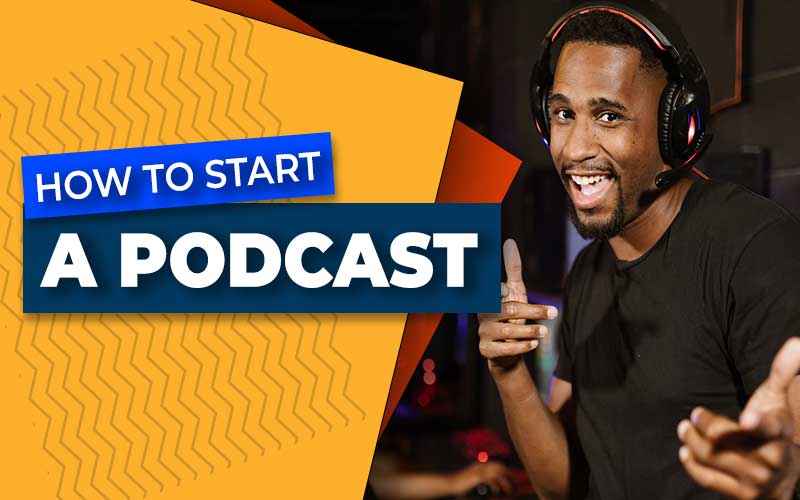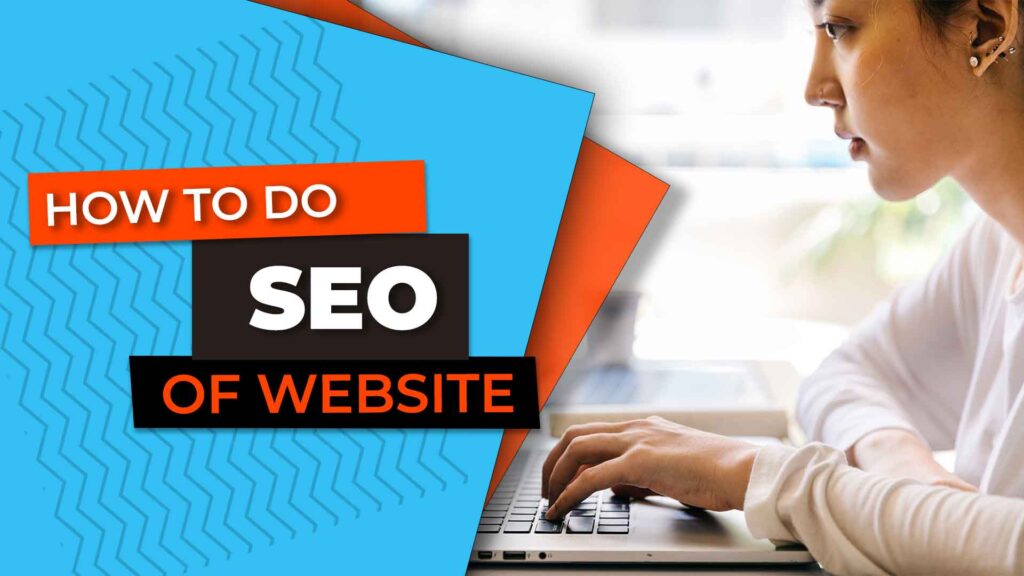Do you want to improve your website’s visibility in search engine results but don’t know where to start? Have you ever wondered how some websites effortlessly appear at the top of search engine results, while others remain hidden in obscurity? I was once in your shoes, grappling with the complexities of SEO.

As a beginner, optimize SEO and rank higher can be overwhelming, but it’s essential for driving traffic to your site.
But no worries! as I unveil the secrets to optimizing your website for search engines. In this blog post, I will guide you through the crucial steps and insider tips to rank higher in search engines, even as a beginner.
You will explore actionable strategies to help you rank higher in search engines and attract more organic traffic.
Get ready to unlock the potential of SEO and watch your website soar to new heights of visibility and success. Let’s embark on this exciting journey together.
Key Takeaway
- Conduct keyword research to identify target keywords
- Optimize website structure and URLs for SEO
- Create high-quality, relevant content for your target audience
- Use meta descriptions and title tags effectively
- Build high-quality backlinks to your site
- Use social media to promote your content and attract links
- Monitor and analyze your site’s SEO performance regularly
If you’re a beginner looking to improve your website’s visibility in search engine results, this post is for you. I’ll share practical tips on how to optimize your website for SEO, including conducting keyword research, creating high-quality content, and building backlinks.
By implementing these strategies, you can rank higher in search engines and attract more organic traffic to your site.
How to Optimize SEO and Rank Higher in Search Engines
STEP 1: Conduct Keyword Research
- Determine Your Target Keywords
- Analyze Your Competitor’s Keywords
- Use Keyword Research Tools
- Consider User Intent and Long-Tail Keywords
STEP 2: Optimize Your Website Structure
- Improve Site Navigation and Architecture
- Use SEO-Friendly URLs
- Ensure Mobile Responsiveness
- Optimize Page Load Speed
STEP 3: Create High-Quality Content
- Conduct Content Gap Analysis
- Develop a Content Strategy
- Write Relevant, Engaging, and Unique Content
- Optimize Content for Target Keywords
STEP 4: Optimize Title Tags and Meta Descriptions
- Write Descriptive and Compelling Title Tags
- Keep Title Tags under 60 Characters
- Write Clear and Concise Meta Descriptions
- Use Target Keywords in Title Tags and Meta Descriptions
STEP 5: Build High-Quality Backlinks
- Create High-Quality and Shareable Content
- Use Guest Blogging to Attract Links
- Leverage Broken Link Building
- Monitor Your Backlink Profile
STEP 6: Utilize Social Media
- Share Content on Social Media
- Optimize Social Media Profiles for SEO
- Engage with Your Audience on Social Media
- Utilize Social Media Ads to Drive Traffic
STEP 7: Monitor and Improve Your SEO Performance
- Use Google Analytics to Track Traffic and Conversions
- Monitor Your Search Engine Rankings
- Conduct Regular Site Audits and Make Improvements
- Keep Up-to-Date with SEO Trends and Algorithm Updates
PROS
- Increased visibility and organic traffic to your blog.
- Better chances of reaching and attracting your target audience.
- Opportunity to establish authority and credibility in your niche.
- Enhanced user experience through optimized site structure and content.
- Potential for long-term, sustainable growth in search engine rankings.
CONS
- Initial learning curve and time investment to understand SEO.
- Constant need for staying updated with evolving search engine algorithms.
- Competition with established websites and brands for search rankings.
- Balancing SEO optimization with creating valuable, engaging content.
- Possibility of SEO strategies not yielding immediate or guaranteed results.
FAQs:
What is SEO and why is it important?
SEO stands for search engine optimization and it’s the practice of improving your website’s visibility in search engine results. SEO is important because it can drive more organic traffic to your site, improve user experience, and increase conversions.
How do I choose the right keywords for my website?
Conduct keyword research to identify keywords relevant to your business and industry. Use keyword research tools, analyze your competitors’ keywords, and consider user intent and long-tail keywords.
What is on-page SEO and how can I optimize it?
On-page SEO refers to optimizing individual pages on your website for search engines. To optimize on-page SEO, improve site structure and navigation, use SEO-friendly URLs, create high-quality content, optimize title tags and meta descriptions, and use header tags and alt tags.
How important are backlinks for SEO?
Backlinks are an important factor in SEO because they signal to search engines that other websites consider your content valuable and relevant. Build high-quality backlinks by creating shareable content, using guest blogging, and leveraging broken link building.
How do I measure my SEO performance?
Use Google Analytics to track traffic and conversions, monitor your search engine rankings, conduct regular site audits and make improvements, and keep up-to-date with SEO trends and algorithm updates.
How long does it take to see results from SEO?
SEO is a long-term strategy and it can take several months to see results. However, by implementing best practices and being patient, you can improve your chances of ranking higher in search engine results.
Wrapping Up:
Optimizing for SEO may seem overwhelming, but by following these best practices and being patient, you can improve your website’s visibility in search engine results and attract more organic traffic.
Remember to conduct keyword research, optimize your website structure and content, build high-quality backlinks, and monitor your SEO performance regularly.
By implementing these strategies, you can rank higher in search engines and achieve your business goals.
- Key Takeaway
- How to Optimize SEO and Rank Higher in Search Engines
- STEP 1: Conduct Keyword Research
- STEP 2: Optimize Your Website Structure
- STEP 3: Create High-Quality Content
- STEP 4: Optimize Title Tags and Meta Descriptions
- STEP 5: Build High-Quality Backlinks
- STEP 6: Utilize Social Media
- STEP 7: Monitor and Improve Your SEO Performance
- FAQs:
- Wrapping Up:




